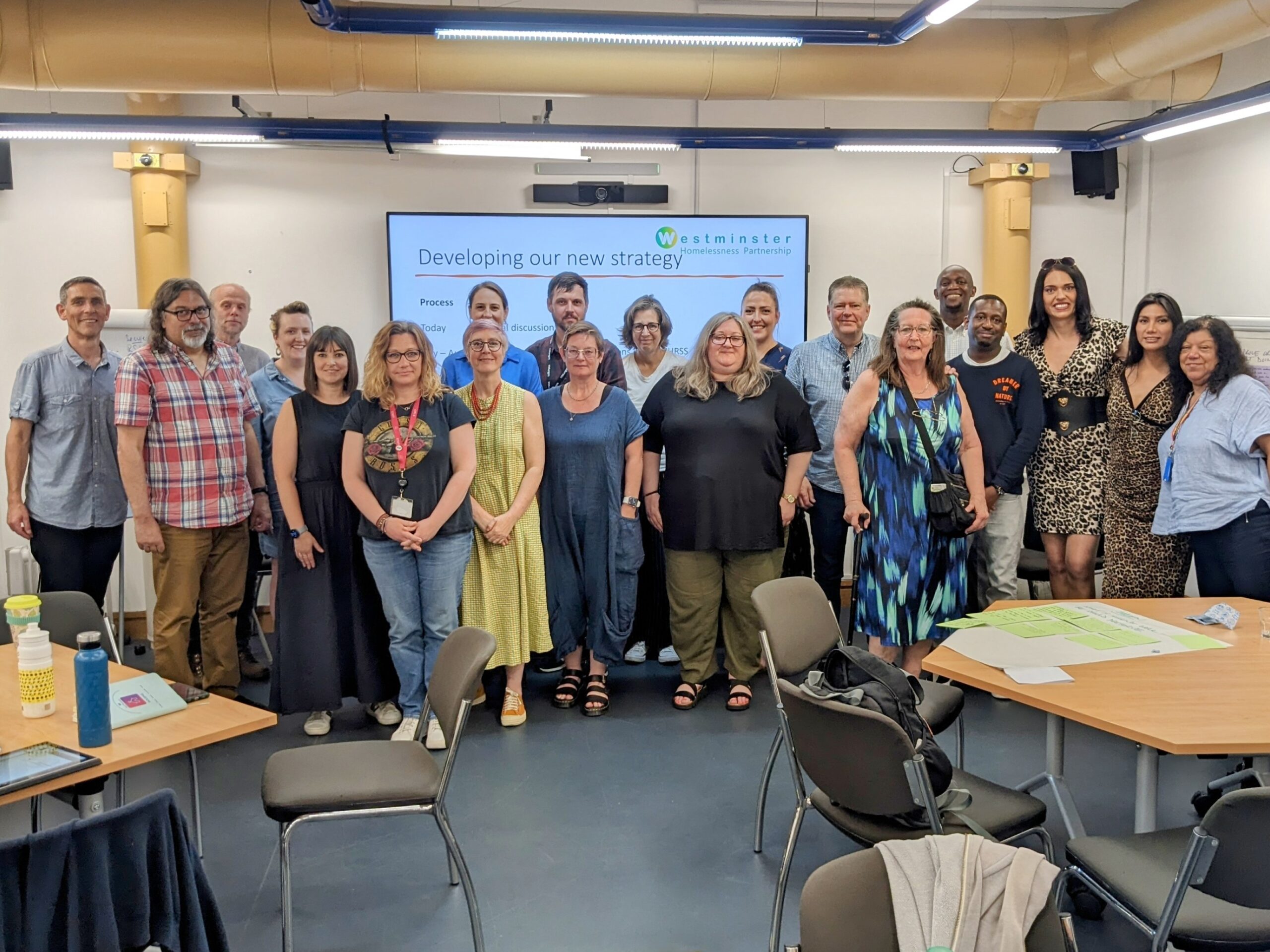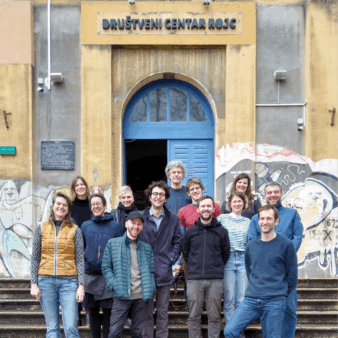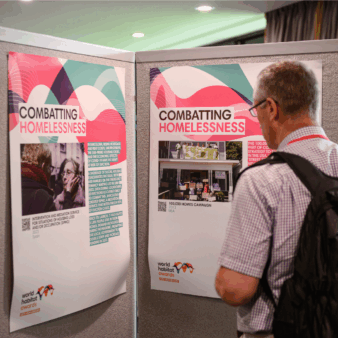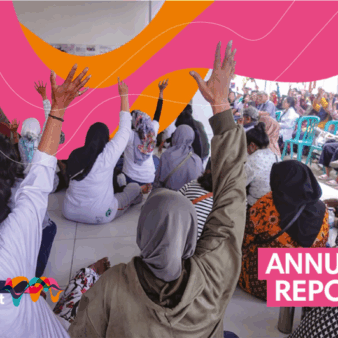
Dominic Williamson is an independent consultant and the Partnership Manager and Facilitator of the Westminster Homelessness Partnership (WHP), which brings together homelessness sector stakeholders to improve services in an area of London with the highest rates of rough sleeping in the UK. Here, he explains what co-production is, the benefits of the approach, and how WHP have been developing a co-production group over the past year.
What is co-production?
Co-production recognises that people can be “experts by experience”. The process of co-production brings people with lived experience of a problem (which in WHP’s case is homelessness) together with the professionals responsible for designing, commissioning or delivering services, in order to innovate and continuously improve.
The concept of co-production has a long history in the UK. It was born from the mental health and disability movements in the 1970s & 80s that rallied under the slogan “nothing about us without us!”, as well as citizen, self-help and squatting cultures of the 1980s and 90s. Groundswell (initially a project founded by what is now Homeless Link) championed service user-led approaches to tackling homelessness and helped it spread throughout the UK. Thanks to pioneers like these, co-production has been widely recognised as an effective way to improve services and policy whilst also supporting people’s recovery.
Today, many homelessness charities in the UK have embraced involvement and co-production, and some have made efforts to embed it into their decision-making processes by, for example, recruiting people with lived experience to their boards.
Having said that, over recent years I have also seen how organisational commitment to co-production can fade without constant advocacy, leadership and resources. Financial pressures too have led some charities to reduce their co-production budgets as they seek to make savings.
WHP’s approach
Many of WHP’s partners have a strong track record of involving people with lived experience in their work. However, the Partnership was determined to develop its own distinct model reflecting the views of people who use services in Westminster. So, over the past year, I have been working with a group of people with direct experience of homelessness in the borough, to co-design and develop our approach, supported by a grant from World Habitat’s Innovation Fund.
After an initial workshop, a group of us visited the Hope Forum, that works to influence services in Leicester. We also looked at how other cities were doing co-production. Through our subsequent discussions, the group decided that they didn’t want to establish a separate body of people with lived experience. Instead they want their voices to be embedded within the decision-making structures of the partnership, with an equal say on WHP’s priorities and projects. This insight determined the eventual design of our approach: the establishment of a co-production committee, which will then elect three people who will sit on the WHP Core Group, the partnership’s decision making body, which comprises representatives from Westminster council and the charities that fund the Partnership.
Westminster’s new Homelessness and Rough Sleeping Strategy
Almost immediately, an opportunity arose for the WHP Co-production Group to make a difference. Westminster City Council were embarking on the process to develop their new homelessness and rough sleeping strategy and had committed to putting the voice of people with lived experience at the heart of their deliberations.
In January and February 2024, I worked with the Co-production Group to design and deliver a series of workshops and interviews where we gathered the experience and recommendations of around fifty people who were homeless in Westminster. We wrote these insights up in a report and made a presentation to local political leaders and officers from the council. In the second phase, the Co-production Group worked alongside council officers to develop the policy content of the draft strategy. And now we are helping to engage other homeless people in commenting on the draft, which is out for public consultation until 7 November. It has been really encouraging to see how the group’s work has helped to shape the draft strategy, which also includes the commitment to support co-production going forward.
People’s involvement in the Co-production Group is on a voluntary basis, but thanks to the council we have been able to acknowledge and say thank you for people’s time and insight with shopping vouchers.
Our next task is to secure long term grant funding to sustain the co-production model into the future. The funding will pay for training, coaching and facilitation and support to prepare committee members for the WHP’s Core and Strategic Group meetings.
The importance of authentic co-production
Over the years, I’ve seen how co-production can be a powerful way to encourage and support people’s recovery from homelessness and associated challenges, such as substance use or poor mental health. It creates opportunities for people to feel they have something valuable to contribute, to have a genuine say in how services are designed, and to use their negative experiences to help other people. For some, this can transform how they think about themselves and their situation,
I’ve also found that “seeing is believing” – and people really recognise the value of co-production once they seen it done well. Sadly, I have also sometimes seen it done badly, where involvement is tokenistic, and people can be left feeling exploited and disillusioned.
Some key take-aways on co-production
- The importance of lived experience: People with lived experience of homelessness bring invaluable insights and perspectives that can significantly improve service delivery.
- Co-production as a collaborative approach: By working together, professionals and individuals with lived experience can develop more effective and relevant services.
- Empowerment through participation: Empowering individuals with lived experience to participate in decision-making processes can lead to more effective and equitable services, policies and better outcomes, while supporting recovery.
- Resources and facilitation: Investing in high quality facilitation and support helps to address challenges such as recruitment, retention, and potential power imbalances is crucial to making co-production effective.
Westminster Homelessness Partnership’s journey shows us how we can improve local strategies, empower individuals and make positive changes in how we address homelessness. By involving the voices and experiences of those directly impacted, we can create more equitable and compassionate solutions and enable more people to escape homelessness once and for all.




Join the discussion